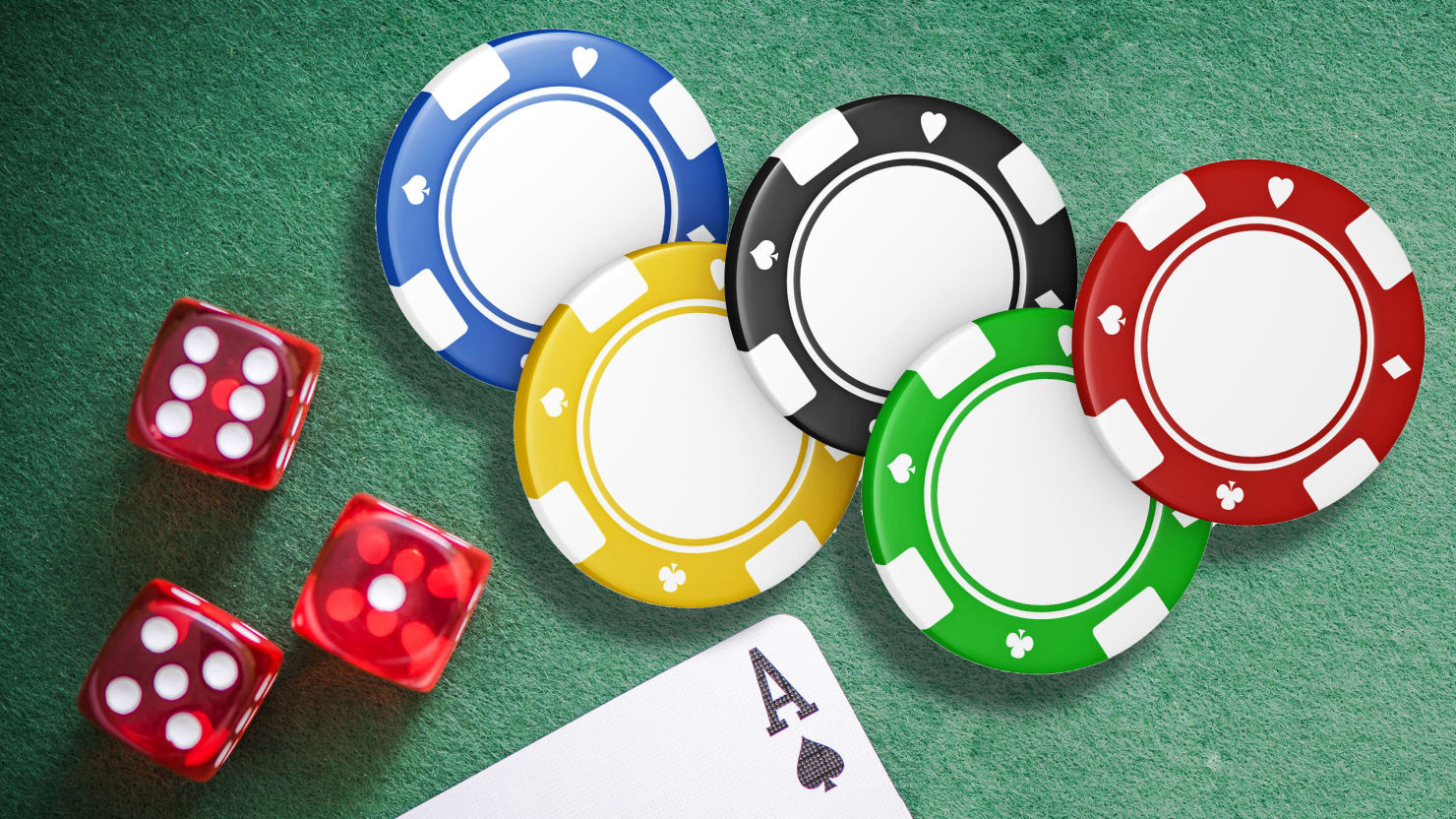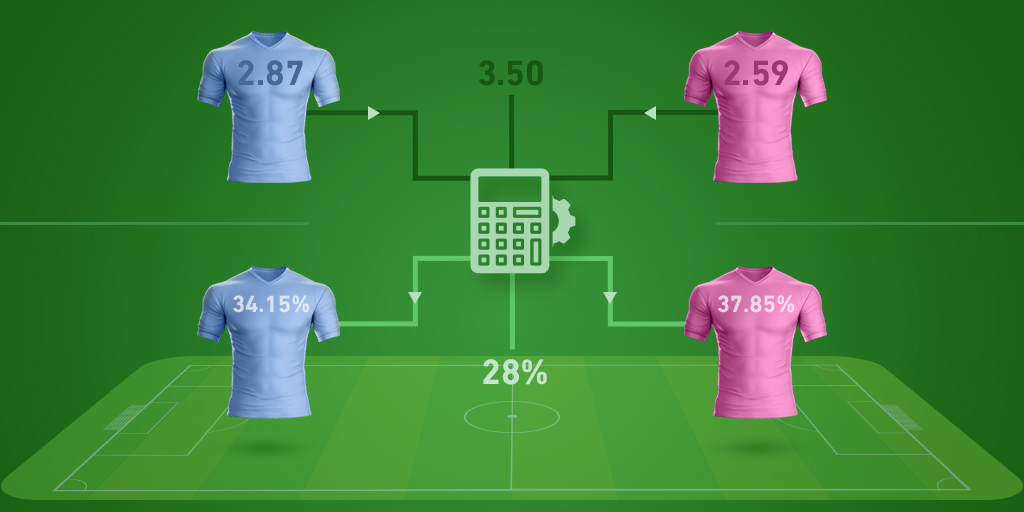How Do Gambling Odds Work
Understanding how betting odds work is crucial for success in gambling, whether you want to win at slots or place bets on sporting events. By knowing the odds of potential bets you can calculate your expected winnings and build an entire strategy for a successful session. Let’s see where betting odds come into action and how to read them.
Betting odds on sports events
Knowing what bet to place on any type of sports events all comes down to the odds. These events can come with different odds based on the bookmaker you place a bet at, so you want to find the ones which offer the best odds for your bet.

In betting, odds represent the ratio between the amounts staked by parties to a wager or bet. Thus, odds of 3 to 1 mean the first party (the bookmaker) stakes three times the. Decimal Style Sports Betting Odds Decimal style odds are used mostly in Europe, and are pretty easy to understand. To calculate the decimal style odds all you will need to do is simply multiply the amount you wish to wager by the decimal odds shown and you will get your payout. For example it may look something like this.
However, you should make sure you understand the odds properly as different bookmakers use various formats of odds for their events. This is so mainly because of geographical differences. In general, there are 3 types of odds you can come across; Fractional, Decimal and American. Let’s see how each one works and how to easily read them.

1. Fractional Odds
Fractional odds are usually found at British or Irish bookmakers. They are also referred to as traditional odds since they were used early on, originally on horse races. These odds are usually shown with a hyphen or a slash, for example, 5/1 or 5-1. This odd is read as five to one. So what does this mean exactly?
A fraction odd of 5/1 means that you stand to win £5 in profit for every £1 you wager. So the total payout from a £1 wager to a 5/1 odd is £6. The same formula is used for bigger wagers and bigger odds. For example, a wager of £100 on an 8/1 odd comes with a total payout of £900. So that’s 8 times what you bet, so it’s 100 x 8 = £800 which is your profit, plus your initial £100 back, given you the total winnings of £900.

This type of odds is still heavily used today, but as we mentioned earlier it’s mostly focused on the UK.
2. Decimal Odds
Decimal odds are also called European odds and they are mostly used in Europe. They are based on the decimal system and are very easy to understand and to work with. With decimal odds, all you need is a calculator and you can easily calculate your profit. This comes especially in handy if you place a single wager and divide it over several events.
The main reason why decimal odds are easy to calculate is that they give you the total expected return. In fractional odds, you need to calculate the profit first and then add your initial wager. With decimal odds, the entire amount is calculated at one go.
For example, you bet $/£100 on a sports event which has decimal odds of 1.60. In order to calculate how much you can win in total all you need to do is multiply your stake with the decimal odds. In this case, it’s 100 x 1.6 which gives us a total of $/£160. As you can see the profit from betting on an event with this odd is $/£60. Just like in fractional odds the higher the odd, the higher the overall payout will be.
3. American Odds
American odds are used pretty much only in the USA and are also known as Moneyline odds. For a person coming from Europe, they can be very confusing, but in fact, they are very simple to read. They are based on placing a $100 bet, so you can easily calculate the end profit based on that bet. The odds for the favourite on an event come with a minus sign, while the odds for the underdog come with a plus sign.
For example, an event can come with +400 for the underdog and -200 for the favourite. So if you bet $100 on the underdog you would make a profit of $400 plus the initial $100 you stake, giving you a total of $500. On the other hand, for the bet on the favourite, you would need to bet $200 in order to win $100, giving you a total of $300.
As you can see the American odds are actually quite easy to read if you’re betting $100. Problems can arise when you want to bet with smaller or bigger amounts and you will need to do some maths in order to calculate the correct odds.
Betting odds on casino games
When we talk about betting odds the first thing that springs to mind is the odds on sporting events. But betting odds are just as important on casino games, especially on table games like blackjack and roulette. In fact, on these games, the odds and payouts are one of the first things you need to learn.
The simplest odd pairing on roulette, for example, is betting on red or black, odd or even. This bet comes with a payout of 1:1 or simply if you bet $/£10 and win you will win $/£20 in total. However, the odds of this bet differ depending on whether you are playing European or American roulette. The European version has a house edge of 2.7%, while the American version comes with a house edge of 5.26%. This means that the odds are more in your favour on the European version because of the smaller house edge.
For a more detailed explanation of how betting odds work for Roulette visit our online Roulette page, and for Blackjack visit our guide to playing blackjack.
Other Betting odds to consider
As you can see odds are pretty easy to read once you know what you’re looking for. It’s imperative to know how to read all types of odds before you embark into the world of betting. You never know which types of odds you can come across at different bookmakers.
Knowing how betting odds work will also come in handy when you want to bet on multiple matches or even on multiple features from a single event. Many bookmakers offer multiple bets on single events so things can start to get a little more complicated when you move away from simply making 1 bet.
Luckily there are ways to reduce the complication because at the end of the day it’s just a calculation. Bookmakers and casinos will often give you a summary of the total you can win, and there are also betting calculators (a good example can be found here https://bookies.com/betting-tools/odds-calculator) which allow you to enter your bets and out comes a total. This is useful as often gamblers will place multiple bets to cover loses, you can’t win them all but you can at least minimise your loss to fight another day.
Kansas City Chiefs (-250), Las Vegas Golden Knights (-110), Toronto Raptors (+125) – the chances are that you’ve come across these sorts of options in your sports betting journey. If you don’t know what these numbers mean, you’re not the only one.
A large number of betting newbies have no idea what the figures are representing. If you want to learn, you’re at the right place. We’re now going to show you how Vegas odds work. We will also explain the process of making the odds. We’re even going to show you how to use this knowledge to your advantage.
What Are Vegas Odds?
Vegas odds a.k.a. American-style odds are the ones you will see in the land-based sportsbooks across Nevada. Caesars, Wynn, Golden Nugget – all these bookies are using the Vegas odds format.
The trouble is that they may seem strange to the inexperienced eye. However, everything becomes clear once you learn more about them. So, how do Vegas odds work?
These odds come in the form of three-digit numbers, which can either be positive or negative. If the number is negative, it means that the team is the favorite. If it’s a positive number, it’s the opposite. If the number on each potential outcome is -110 (or sometimes -105), it means that each team has an equal chance of winning.
The big question is how can you use these odds to figure out how much money you’re going to cash in if your bet wins? That’s the question we’re going to answer next.
How You Calculate Vegas Odds?
You calculate your potential win based on whether the odds come as a positive or a negative number. If the odds are positive, e.g., +150, it practically means that this is how much you can profit if you bet $100.
Let’s say you want to bet Justin Gaethje at Vegas odds of +150. If you put, $100, you’re going to make a net profit of $150 if he wins. But, what if you’d like to bet a different amount?
In that case, you need to use the following formula:
Vegas Odds/100 x Your Stake
So, let’s say you wish to put $70 on Gaethje, your potential net profit is calculated by dividing his odds by 100, then multiplying the number with 70.
Use your calculator and you will see that 150/100 x 70 equals 105. That is how much you will make if Gaethje wins. Note that $105 is your net profit, while you’ll also get your $70 stake back. So, your total win would be $175 on a $70 bet.
An important thing to remember is that the aforementioned formula only works if odds are displayed as positive numbers. If the number is negative (e.g., -150), you need to go with a different formula. In that case, this is what you got to use:
Your Stake/Vegas Odds x 100

This is because, with Vegas odds, the negative number represents the amount of money you need to bet in order to win $100. So, if the odds are -150, you will have to bet $150 to get a net profit of $100.
Is There a Simpler Alternative?
Vegas odds are traditionally used in land-based sportsbooks across Nevada. It’s been like that for decades, and when online sports betting became legal in other US states, most operators decided to embrace this format.
The same was the case with offshore sportsbooks that cater to American customers, with one important difference – BetOnline.ag, MyBookie.ag, SportsBetting.ag, and many other bookies let the players decide on the odds format.
So, if you find Vegas odds too complicated, you can always use decimal odds in offshore sportsbooks. How they work is that your stake is multiplied by the odds. The result you get is your gross profit (your net profit + your stake). For example, if the odds on Tampa Bay Buccaneers are 1.65 and you wish to bet $90, your potential win is $148.5.
How Do Horse Bet Odds Work

Who Sets the Odds in Vegas?
When speaking about Vegas odds, there’s another question that pops out – who decides them? Some sportsbooks employ teams of oddsmakers to come up with the odds, while some hire independent companies to do the work for them.
In both cases, the goal is to set the odds in such a way that they attract equal action on both outcomes. This way, the sportsbook is going to make profits regardless of the outcome. As a result, the Vegas odds on the favorite are always negative numbers, while underdogs get positive numbers.
Oddsmakers take into account various factors to decide who’s the favorite/underdog. What we’re talking about are power rankings, game locations, the form of the teams, and so on. However, this doesn’t necessarily mean that Vegas odds equal the true probability.
Using the Odds Knowledge to Your Benefit
The thing about odds is that they change all the time. For example, there might be some big news coming from a team’s roster, such as an injury of a key player. You can be sure that the sportsbooks will adjust the odds in that case in order to protect themselves.
How Do Gambling Odds Work
Still, the #1 reason why odds change lies in the behavior of the bettors. If the players suddenly start betting on one outcome, the sportsbook will have to react by adjusting the odds. They will move the odds on the outcome in question (e.g., from -128 to -175), while moving the odds against the opposite outcome (e.g., from +108 to +155).
How To Gambling Odds Work
This way, they are making sure they aren’t going to have to pay out too much money if the favorite wins. At the same time, they are encouraging bettors to put their money on the underdog with the odds more lucrative than earlier.
How can you use this knowledge to your benefit? You can go on an odds hunt. If you compare all the odds available, you will be able to find the best value for your bets. It may be at a Vegas-based sportsbook or it could be at an offshore website, you’ll find out only after you’ve compared them!